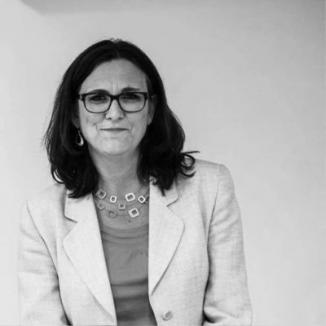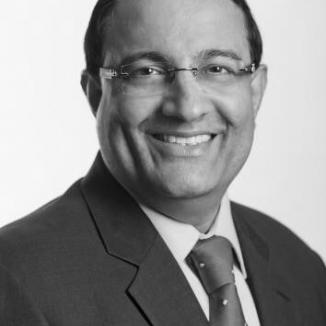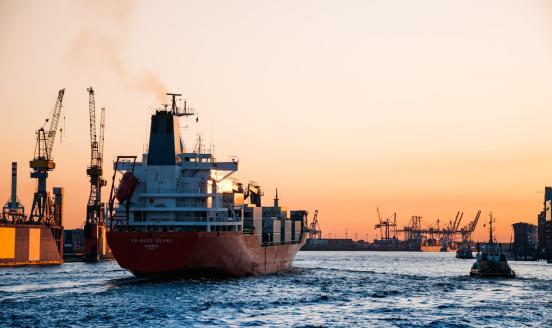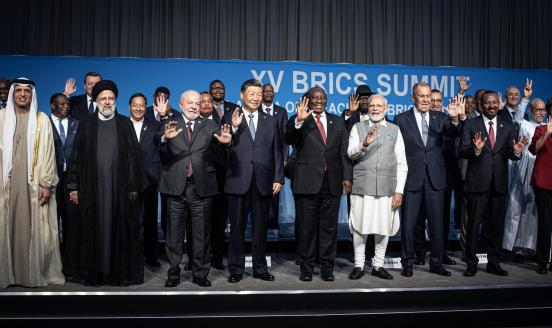EU-Singapore relations in a global context
At this event Minister S. Iswaran and Commissioner Malmström will discuss Singapore-EU relations, following the signing of a FTA in 2018 and in the co

Speakers
Cecilia Malmström
Nonresident Senior Fellow, Peterson Institute for International Economics
S. S. Iswaran
Minister for Communications and Information and Minister-in-charge of Trade Relations, Republic of Singapore,
VIDEO & AUDIO rECORDINGS
SUMMARY
On 11 September we were honoured to welcome S. Iswaran, Singapore’s Minister for Communications and Information and Minister-in-charge of Trade Relations who engaged in a conversation with Cecilia Malmström, European Commissioner for Trade. They discussed EU-Singapore relations in the context of the wider region and times of global upheaval.
Nearly 10 years after negotiations began in 2010, the EU-Singapore Free Trade Agreement (EUSFTA) has been signed, and is now awaiting ratification from both parties. Bruegel’s Senior Fellow André Sapir chaired a discussion on this topic and broader trade relations between the EU and Singapore with panelists S. Iswaran, Singapore’s Minister for Communications and Information and Minister-in-charge of Trade Relations, and Cecilia Malmström, European Commissioner for Trade.
Mr. Sapir began by commenting on the drastic changes having occurred since this agreement was first negotiated, and asked both panelists what they considered to be the EUSFTA’s significance in the current global economic environment. Minister Iswaran highlighted three key points in response to this. First, the agreement signals the EU’s commitment to promoting freer trade, which is of particular importance given the current global political climate. Second, it reaffirms the EU’s willingness to engage with ASEAN countries, and could be a stepping stone towards broader inter-regional linkages. Finally, it is particularly significant for small and medium companies from both regions. Commissioner Malmström concurred that the agreement reaffirmed values of free trade and multilateralism, while providing economic benefits thanks to cross-recognition of standards and reduced trade barriers.
Mr. Sapir went on to ask about the achievements, challenges and future of the EU-ASEAN relationship. Commissioner Malmström explained that the long-term goal for the Commission was to establish a region-to-region agreement between the EU and ASEAN. Minister Iswaran underlined the great opportunities which the ASEAN region had to offer, both presently and in the future, as well as the platforms and mechanisms available to the EU to engage with it, but warned not to underestimate the challenges posed by the heterogeneity in both regions.
Mr. Sapir then asked Minister Iswaran where Singapore stood with regards to reforms in the international trade system, to which the Minister replied that the WTO, despite its limitations, was critical to global economic stability and growth. As such, it needed to stay strong and relevant, namely by having a fit-for-purpose agenda, which should include domains such as e-commerce.
Commissioner Malmström was then asked about the main messages to be given to the new Trade Commissioner concerning priority topics for the next 5 years. She listed the agricultural sector, WTO reforms and modernization, relations with the US, especially the need for de-escalation, and the need to apply pressure to China.
Finally, Mr. Sapir asked about how the bilateral conflict between China and the US was understood from Singapore’s vantage point, considering it is one of the few WTO countries to have FTAs with both countries. The Minister discussed the economic significance of these two superpowers for Singapore and all the rest of the world. He also noted how highly interdependent the two countries are, hoping this would potentially be a mitigating factor. He recommended a systemic approach to the trust deficit which is largely causing these issues, and which might ultimately cause supply chains to break down globally.
During the Q&A session, panelists answered questions about the future of the international trade system, WTO reforms, and the paths EU-ASEAN relations could follow.
Notes by Aliénor Cameron






